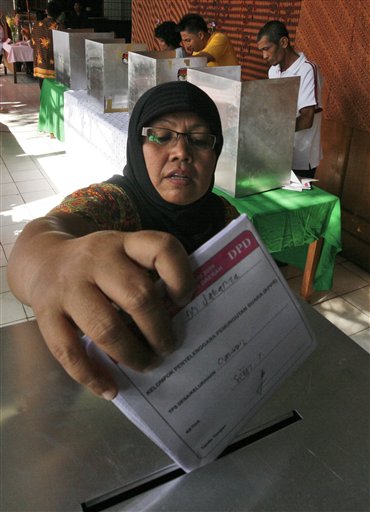These results will lead to an interesting period of horse-trading as the party winners jockey for positions to choose combination tickets for the first-round of Presidential elections. Of the three large parties, SBY’s Democrat Party has emerged as the clear winner and will hold a strong position in the future politics of Indonesia.
SBY will have considerable scope in selecting his running-mate. He could possibly continue with his current Vice-President, Jusuf Kalla, but inter-party rivalry may make this difficult. On the other hand, even a nominal Democrat-Golkar alliance would constitute a decisive block in Parliament.
SBY could also choose Hidayat Nur Wahid, a charismatic figure from the Prosperous Justice Party. Although PKS is likely to have the largest vote among Islamic parties, it has not done as well as had been expected and may not offer sufficient benefit for the future. Or SBY could choose, with reasonable confidence, someone who is as yet unidentified but could be groomed to lead the Democrat Party forward at the next election.

